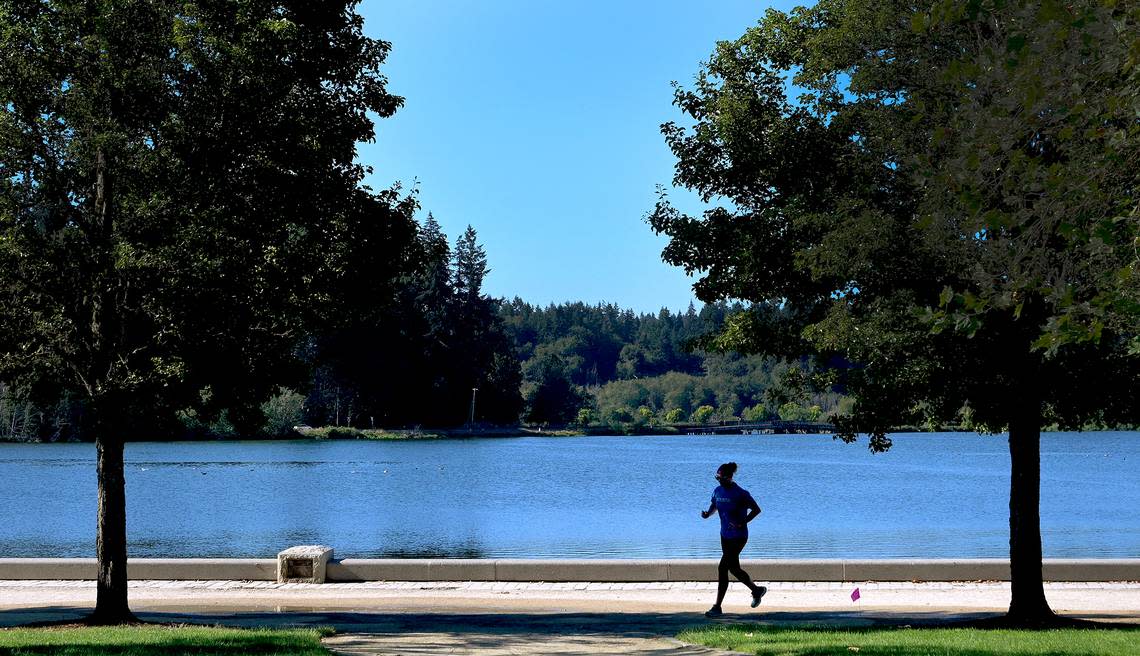Get ready to sweat as heat advisory issued for South Sound. Here’s what to expect

The Fourth of July has ushered in summer on schedule — but with extra intensity in the South Sound. Expect hot conditions this weekend with temperatures likely reaching the high 90s by Sunday.
The National Weather Service in Seattle issued a heat advisory Wednesday for parts of northwest and west central Washington. The advisory will be in effect from noon Friday to 10 p.m. Monday.
High temperatures in the Olympia area will climb into the mid 90s by Sunday, according to the NWS forecast. Low temperatures will remain in the mid 50s to 60.
The trend comes as high pressure builds and moves eastward over the region in the latter half of the week, according to forecasters.
The heat advisory says the conditions will “significantly increase the risk of heat-related illness” for many people, especially those who are sensitive to heat and those who may not have adequate cooling or access to water.
Though the advisory expires Monday, the NWS warns that temperatures will remain “well above normal” next week. The forecast shows highs may reach about 90 degrees on Monday and Tuesday and will remain in the 80s through at least Friday.
Normally, temperatures peak in the mid-70s during the first weeks of July, according to past weather data from the National Oceanic and Atmospheric Administration.
The record high for Olympia on July 7, when temperatures are expected to peak, is 95 degrees, set in 1953, according to NOAA data.
In a Tuesday weather briefing, the NWS said the warm conditions will lead to “elevated fire weather concerns.”
Though winds do not yet appear to be a major factor, the briefing indicated fuels will dry quickly and may “become critical.”
The NWS recommends that during the heat wave, people hydrate, stay in air-conditioned rooms, avoid the sun and check on relatives and neighbors. Young children and pets should never be left alone inside a vehicle, the advisory says.
Those who must spend time outdoors are advised to wear lightweight and loose-fitting clothing as well as take frequent rest breaks in shaded or air-conditioned areas, according to the advisory.


